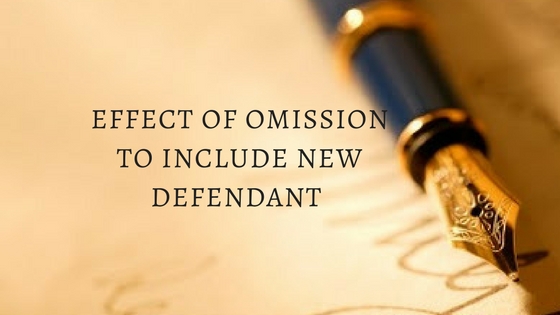Aapka Consultant Judgment Series- In this series, we are providing case analysis of Landmark Judgments of Hon’ble Supreme Court of India.
Karuppaswamy and Others v. C. Ramamurthy
AIR 1993 SC 2324, [1993] 4 SCC 41
JUDGES: M. M. Punchhi and K. Ramaswamy
Date of Decision: 14-07-1993
FACTS
The plaintiff-respondent filed a suit on the last date of limitation period against Z for recovery of a certain sum for which a promissory note executed in his favour. But Z having died about six weeks ago, the summons issued to the defendant was returned by the first hearing with the remark that the defendant was dead, without however disclosing the date of death. Later, he filed an application under O 22 R 4 of CPC after expiry of the period of limitation pleading to bring the heirs and legal representatives of the deceased on records as the appellants. The appellants in counter statement pleads that the suit against the dead defendant was non est. The plaintiff then moved another application for change of provision from O 22 R 4 of CPC to Ss. 151 and 153 of CPC. The trial court opined that the plaintiff was ignorant as to such death and that is why he filed the application under O 22 R 4 of CPC. However, the trial court dismissed both the applications of the plaintiff-respondent taking the view that since the application under O 22 R 4 of CPC the suit on the basis of the pronote had become barred by time against them and that there was no ground to invoke inherent power under S. 151 of CPC. However, the High Court, in conclusion, held that plaintiff-respondent by taking prompt action had acted in good faith. The appellant has challenged this order before the Supreme Court.
ISSUE
Whether omission to include new defendant by plaintiff can be considered as mistake in good faith under proviso of S. 21(1) of the Limitation Act?
JUDGMENT
The Supreme Court found sweep of the relevant provision under the act, governing the subject. On comparative reading it was clear the proviso to S. 21(1) of the Limitation Act permits correction of errors which have been committed due to a mistake made in good faith but only when the court permits correction of such mistake. In that event its effect is not to begin from the date on which the application for the purpose was made, or from the date of permission but from the date of the suit, deeming it to have been correctly instituted on an earlier date than the date of making the application. The proviso of S. 21(1) of the act is obviously in line with the spirit and thought of some other provisions in Part III of act such as S.14 and 17(1). While invoking the beneficent proviso to S.21 (1) of act an averment that a mistake was made in good faith by impleading a dead defendant in the suit should be made and the court must on proof be satisfied that the motion to include the right defendant by substitution or addition was just and proper, the mistake having occurred in good faith.
It was observed from the findings of the High Court that there was nothing to show that the plaintiff was aware of the death of the first defendant and yet knowing well about it, he persist in filing the suit against a dead person. In conclusion, it clearly showed that he had acted in good faith. Thus the High Court made out a case for invoking the proviso to S.21 (1) in favour of the plaintiff-respondent and allowed the applications and ordered the suit against the appellants to be dated back to the date on which the plaint was originally presented.
Hence, the High Court rightly applied the proviso of Article 21 (1) on being satisfied that the action taken was in good faith. In the result, the Supreme Court allowed the appeal.
HELD
The Supreme Court held, the application for impleading the legal representatives of the deceased deemed to have been filed on the date when the original plaint was filed and as such, will be considered within the limitation period.
To Get Legal Opinion from Advocates/ Legal Experts, Please click here
To Get Legal Opinion from Retired Hon’ble Judges, Please click here












